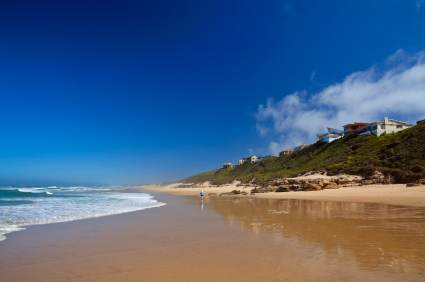

 The holiday house purchase decision: emotional or logical?
The holiday house purchase decision: emotional or logical?
You’ve just spent two glorious weeks at the end of January at your friend’s beachside holiday house with your young family. The stress of the past year’s hard work has vanished and you’re feeling great. You’ve reconnected with your partner and your five and eight year olds have been reacquainted with a parent.
It’s about the worst time possible to make a rational investment decision but you decide that you should buy your own holiday house, now. A couple of hours drive from home, so that you and the family can recreate the bliss of the recent holiday every weekend.
Some holiday house reality
Before you make what for most people is a very significant expenditure, let’s inject a dose of reality to this emotionally charged thinking. Some hard-nosed considerations include:
- Unless the property is available to rent (on commercial terms), you are unlikely to be able to claim tax deductions for maintenance costs and interest on any loan to purchase the property;
- Assuming the holiday house is not considered your principal residence, it will be subject to capital gains tax on sale;
- Unless you employ people to maintain the property and bear the additional expenses, many of those “blissful” weekends will be spent doing chores;
- When children are relatively young, organising weekends away is easy. But once sporting and other alternatives emerge, it becomes increasingly difficult for the family to go to the holiday house during school term;
- Rental returns are highest during school vacations. But once your children are in secondary school, it may be the only time the family is able to use the property; and
- Last, but not least, because of the money tied up in the holiday house there may be a reluctance to go anywhere else for holidays. But the appeal will almost certainly wear off for some members of the family, particularly for teenage children who have “cooler “things to do on weekends than to go to the holiday house with mum and dad.
The holiday house is a lifestyle choice
Holiday houses, like boats and hobby farms, are lifestyle assets. You should not consider them as “serious investments”. The reality is that they are highly likely (but not guaranteed) to turn out to be poor choices compared with more appropriate investment alternatives available at the time of purchase.
Ahead of the purchase decision, a holiday house does not tick off on what we would consider best investment practice (see “Foundations of Financial Economics”). In particular, more often than not it exacerbates an already concentrated (and, perhaps, geared) exposure to residential property that comes with ownership of an existing family home.
However, this does not mean we think it never makes sense to buy a holiday house or any other lifestyle asset. Rather, we would encourage you to look at the potential consequences of the purchase for other objectives that may be important to you.
For example, if a detailed analysis suggests that that the purchase of the holiday house is likely to delay your plans for retirement for five years then you are then in a position to more sensibly weigh up the benefits and costs and make a sound decision.
Alternative and, perhaps, better ways to obtain the perceived lifestyle benefits of the holiday house may also become apparent if the decision is considered in a “bigger picture” context.
After doing the analysis and considering the alternatives, the decision may be to purchase the holiday house. You can take comfort that you made it with your “eyes wide open”, rather than as a knee-jerk response to a recent positive lifestyle experience.

1 Comment. Leave new
I really like your post on holiday house lifestyle. That really is an eye opener when it comes to the holiday choices because people are really to stress to make a rational decision to investment in the right thing to make wealth a lifestyle choice. I have been there before.